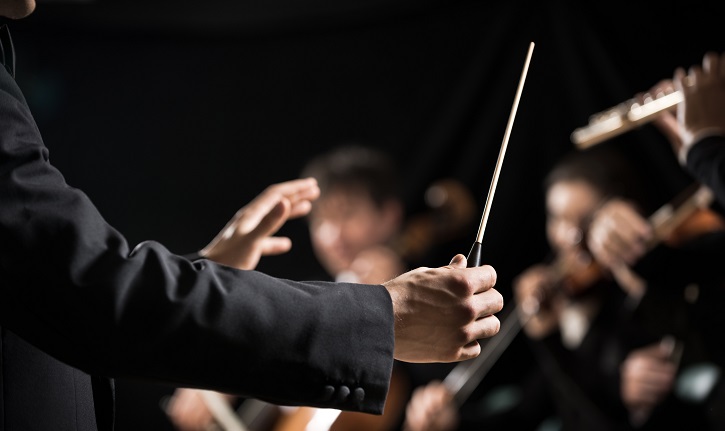Stuart Dunlop, Director of Music at UEA, writes about the joys of performance, the power of music to bring people together, and how, despite the obvious challenges, you can't hold music performance back for long.

In the Music Centre this odd time has been a kind of groundhog National No Music Day (21 November if you’re interested, the day before St Cecilia’s Day, patron saint of musicians). But a lot of the music has been happening in our heads – perhaps mine particularly. We’ve been mining the archive of concert footage from the past three or four years and it has turned out to be a heaven-sent chance to take stock. I’m taken aback by the body of work UEA musicians have built up.
When I say UEA musicians I really mean all those who take part in our ensembles, and in the bands playing in studios and in pubs I barely know about. If I stick for the moment to what I do know, the musicians consist of students, current and former staff from all parts of UEA and a considerable number of people from all around the university’s hinterland.
We have more than a few talented ones among them, but we also have many, many folk for whom making music is a desire to make the world just a wee bit better, and who have the courage, persistence and discipline to act on whatever drives them towards it.
I find myself thinking as much about musicians as I do music at the moment and, speaking as one gifted much more with persistence than the facility that identifies talent, I am profoundly grateful for the company of the persistent and the talented alike as we hurl ourselves against the ramparts of some of the most rigorous and conceptually demanding art that humans have ever produced. I feel appropriately humbled by it, and laugh outrageously at our occasional failures.
The level of skill required for some music can, of course, range from considerable to astronomical, but it’s not the case that you have to be either ‘talented’, ‘experienced’ or even ‘musical’ to give it a go. I have huge admiration for the starters too. Thirty-five thousand years ago we were all starters and the need to articulate something that music enables drove us then and drives us now: just begin.
What makes me really proud of the musicians of UEA is the way that over time the various levels can knit together in a common enterprise. I love the way that we start by not knowing a piece and not really being able to do it, and we batter our way through to some sort of understanding. That constant renewal of challenge is a good teacher of humility.
But coming together to begin again is what’s most difficult to see at present. We’re going to have to be patient, flexible, optimistic; we’re going to have to take the opportunities that do arise and be smart in creating some as well. The contradiction inherent in staying apart when the human need for music is rooted in coming together will have to be overcome. Just don’t ask me to nail down how yet.
In the meantime we’re editing all this wonderful footage and sending it out to care homes. We’re trying to invent ways to use it to begin to fill the void that has replaced music in many schools. And who knows what other uses we or others might invent for it.
Music, I’ve decided, is like dandelions. It will come up all over the place, the seeds blown by the wind. You can tarmac over dandelions and the force that drives the flower will urge them up strongly enough to break through. And I’ll be hanging to the petals as they start to open out.
Find out more about UEA's music centre

:focus(1538x1747:1539x1748))